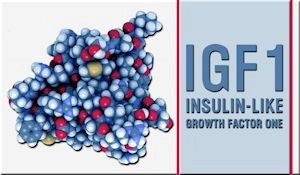Introduction
Testosterone, the primary male sex hormone, plays a crucial role in maintaining various physiological functions, including muscle mass, bone density, and sexual health. However, chronic stress has emerged as a significant factor influencing testosterone levels, leading to a condition known as Testosterone Deficiency Syndrome (TDS). This article delves into the effects of chronic stress on testosterone levels in American males, with a particular focus on TDS.
Understanding Testosterone Deficiency Syndrome
Testosterone Deficiency Syndrome, also known as hypogonadism, is characterized by abnormally low levels of testosterone. Symptoms of TDS can include reduced libido, erectile dysfunction, decreased muscle mass, and mood disturbances. In American males, TDS has become a growing concern, with an increasing number of men seeking treatment for its symptoms.
The Role of Chronic Stress
Chronic stress, defined as prolonged exposure to stressors, can significantly impact the body's hormonal balance. The hypothalamic-pituitary-adrenal (HPA) axis, which regulates the body's response to stress, plays a central role in this process. When activated, the HPA axis leads to the release of cortisol, the primary stress hormone. Elevated cortisol levels can, in turn, suppress the production of testosterone.
Mechanisms of Testosterone Suppression
The mechanisms by which chronic stress leads to testosterone suppression are multifaceted. Firstly, cortisol competes with testosterone for binding sites on proteins in the blood, reducing the amount of free testosterone available to the body. Secondly, chronic stress can disrupt the pulsatile release of luteinizing hormone (LH) from the pituitary gland, which is essential for stimulating testosterone production in the testes. Lastly, stress-induced inflammation can further impair testicular function, exacerbating testosterone deficiency.
Prevalence Among American Males
In the United States, the prevalence of TDS is estimated to be around 2-6% among men aged 40-79 years. However, the actual number may be higher due to underdiagnosis. Chronic stress, often stemming from work-related pressures, financial concerns, and lifestyle factors, is increasingly recognized as a contributing factor to TDS in American males.
Impact on Quality of Life
The consequences of TDS extend beyond physical symptoms, significantly affecting the quality of life. Men with TDS often report decreased energy levels, diminished sexual satisfaction, and increased irritability, all of which can strain personal and professional relationships. Addressing chronic stress is, therefore, not only crucial for managing TDS but also for enhancing overall well-being.
Management and Treatment Strategies
Managing TDS in the context of chronic stress requires a multifaceted approach. Lifestyle modifications, such as regular exercise, a balanced diet, and adequate sleep, can help mitigate stress and support testosterone production. Stress reduction techniques, including mindfulness, meditation, and cognitive-behavioral therapy, have also shown promise in alleviating the symptoms of TDS.
In cases where lifestyle changes are insufficient, medical interventions may be necessary. Testosterone replacement therapy (TRT) is a common treatment for TDS, but it should be approached with caution due to potential side effects and the need for long-term monitoring. Additionally, addressing underlying health conditions, such as obesity and diabetes, can help improve testosterone levels.
Conclusion
Chronic stress poses a significant threat to testosterone levels in American males, contributing to the development of Testosterone Deficiency Syndrome. Understanding the mechanisms by which stress impacts testosterone production is crucial for effective management and treatment. By adopting a comprehensive approach that includes lifestyle modifications, stress reduction techniques, and, when necessary, medical interventions, men can mitigate the effects of TDS and improve their overall quality of life. As awareness of the link between chronic stress and testosterone levels grows, it is hoped that more American males will seek the support and treatment they need to combat this pervasive health issue.
Contact Us For A Fast And Professional Response

- Understanding Testosterone Deficiency: Symptoms, Diagnosis, and Treatment for American Men [Last Updated On: March 1st, 2025] [Originally Added On: March 1st, 2025]
- Testosterone Deficiency Impact on Muscle Mass in American Men: Diagnosis and Treatment [Last Updated On: March 17th, 2025] [Originally Added On: March 17th, 2025]
- Environmental Toxins Linked to Testosterone Deficiency in American Males [Last Updated On: March 17th, 2025] [Originally Added On: March 17th, 2025]
- Alcohol's Impact on Testosterone and TDS in American Males: A Comprehensive Analysis [Last Updated On: March 18th, 2025] [Originally Added On: March 18th, 2025]
- Testosterone Deficiency Syndrome: Symptoms, Diagnosis, and Management Strategies for American Men [Last Updated On: March 18th, 2025] [Originally Added On: March 18th, 2025]
- Testosterone Deficiency Syndrome: Impact on Energy and Treatment Options for American Men [Last Updated On: March 18th, 2025] [Originally Added On: March 18th, 2025]
- Stress-Induced Testosterone Deficiency in American Males: Causes, Effects, and Management [Last Updated On: March 19th, 2025] [Originally Added On: March 19th, 2025]
- Smoking's Impact on Testosterone Deficiency in American Males: Mechanisms and Mitigation [Last Updated On: March 20th, 2025] [Originally Added On: March 20th, 2025]
- Testosterone Deficiency Syndrome: Understanding and Managing with Hormone Therapy [Last Updated On: March 20th, 2025] [Originally Added On: March 20th, 2025]
- Testosterone Deficiency in Men: Symptoms, Prostate Health, and Treatment Options [Last Updated On: March 20th, 2025] [Originally Added On: March 20th, 2025]
- Testosterone Deficiency in American Men: Impacts on Mood and Treatment Options [Last Updated On: March 20th, 2025] [Originally Added On: March 20th, 2025]
- Weight Training Benefits for Men with Testosterone Deficiency Syndrome [Last Updated On: March 21st, 2025] [Originally Added On: March 21st, 2025]
- Chronic Illness Impact on Testosterone Levels in American Males: Management Strategies [Last Updated On: March 22nd, 2025] [Originally Added On: March 22nd, 2025]
- Testosterone Check-ups Crucial for American Males to Combat Deficiency Syndrome [Last Updated On: March 22nd, 2025] [Originally Added On: March 22nd, 2025]
- Testosterone Deficiency and Sleep Apnea: A Bidirectional Health Challenge for American Males [Last Updated On: March 22nd, 2025] [Originally Added On: March 22nd, 2025]
- Vitamin D's Role in Managing Testosterone Deficiency in American Males [Last Updated On: March 23rd, 2025] [Originally Added On: March 23rd, 2025]
- Testosterone Deficiency and Joint Health: Insights for American Males [Last Updated On: March 23rd, 2025] [Originally Added On: March 23rd, 2025]
- Magnesium's Role in Managing Testosterone Deficiency Syndrome in American Males [Last Updated On: March 23rd, 2025] [Originally Added On: March 23rd, 2025]
- Testosterone Deficiency Syndrome and Immune Function in American Men: A Comprehensive Overview [Last Updated On: March 23rd, 2025] [Originally Added On: March 23rd, 2025]
- Testosterone Deficiency Impacts Body Composition in American Males: Muscle, Fat, Bone [Last Updated On: March 24th, 2025] [Originally Added On: March 24th, 2025]
- Testosterone Deficiency Syndrome: Impacts on Skin Health and Management Strategies for American Men [Last Updated On: March 24th, 2025] [Originally Added On: March 24th, 2025]
- Soy Consumption and Testosterone Levels in American Males with TDS: A Complex Relationship [Last Updated On: March 24th, 2025] [Originally Added On: March 24th, 2025]
- Testosterone Deficiency Syndrome: Impacts and Management in American Male Athletes [Last Updated On: March 24th, 2025] [Originally Added On: March 24th, 2025]
- Shift Work's Impact on Testosterone Levels and Deficiency Syndrome in American Males [Last Updated On: March 24th, 2025] [Originally Added On: March 24th, 2025]
- Zinc's Vital Role in Combating Testosterone Deficiency in American Men [Last Updated On: March 24th, 2025] [Originally Added On: March 24th, 2025]
- Testosterone Deficiency Linked to Dental Health Issues in American Males [Last Updated On: March 24th, 2025] [Originally Added On: March 24th, 2025]
- Testosterone Deficiency in American Men: Impacts on Vision and Eye Health [Last Updated On: March 24th, 2025] [Originally Added On: March 24th, 2025]
- Testosterone Deficiency Syndrome: Impact on Cognitive Function in American Men [Last Updated On: March 25th, 2025] [Originally Added On: March 25th, 2025]
- Plasticizers' Impact on Testosterone Levels and TDS in American Men: A Review [Last Updated On: March 25th, 2025] [Originally Added On: March 25th, 2025]
- Testosterone Deficiency and Depression: A Critical Link in American Men's Health [Last Updated On: March 25th, 2025] [Originally Added On: March 25th, 2025]
- Omega-3 Fatty Acids: A Natural Approach to Managing Testosterone Deficiency in Men [Last Updated On: March 25th, 2025] [Originally Added On: March 25th, 2025]
- Testosterone Deficiency and Hair Loss: Understanding and Managing in American Men [Last Updated On: March 25th, 2025] [Originally Added On: March 25th, 2025]
- Pesticide Exposure Linked to Low Testosterone in American Men: Health Risks and Mitigation [Last Updated On: March 25th, 2025] [Originally Added On: March 25th, 2025]
- Air Pollution's Impact on Testosterone Levels in American Males: A Growing Concern [Last Updated On: March 26th, 2025] [Originally Added On: March 26th, 2025]
- Testosterone Deficiency Syndrome and Its Link to Hearing Loss in American Males [Last Updated On: March 26th, 2025] [Originally Added On: March 26th, 2025]
- Testosterone Deficiency and Anemia: Impacts and Management for American Males [Last Updated On: March 26th, 2025] [Originally Added On: March 26th, 2025]
- Testosterone Deficiency in American Males: Impacts on Memory and Cognitive Health [Last Updated On: March 26th, 2025] [Originally Added On: March 26th, 2025]
- Fenugreek: A Natural Solution for Testosterone Deficiency Syndrome in American Males [Last Updated On: March 26th, 2025] [Originally Added On: March 26th, 2025]
- Blue Light Exposure Linked to Testosterone Deficiency in American Men: Mitigation Strategies [Last Updated On: March 26th, 2025] [Originally Added On: March 26th, 2025]
- Diet Soda Consumption Linked to Lower Testosterone Levels in American Men [Last Updated On: March 26th, 2025] [Originally Added On: March 26th, 2025]
- Testosterone Deficiency and Thyroid Dysfunction: Interconnected Health Issues in American Males [Last Updated On: March 26th, 2025] [Originally Added On: March 26th, 2025]
- Boron Supplementation: A Natural Approach to Managing Testosterone Deficiency in American Males [Last Updated On: March 27th, 2025] [Originally Added On: March 27th, 2025]
- Ashwagandha's Potential in Boosting Testosterone for American Males with TDS [Last Updated On: March 27th, 2025] [Originally Added On: March 27th, 2025]
- Testosterone Deficiency in American Men: Impacts, Diagnosis, and Treatment Options [Last Updated On: March 27th, 2025] [Originally Added On: March 27th, 2025]
- High-Fat Diets and Testosterone Levels: Impacts and Dietary Recommendations for American Males [Last Updated On: March 27th, 2025] [Originally Added On: March 27th, 2025]
- Testosterone Deficiency and Liver Health in U.S. Males: Impacts and Management Strategies [Last Updated On: March 28th, 2025] [Originally Added On: March 28th, 2025]
- TDS and Gallbladder Disease: Insights, Risks, and Management Strategies for American Males [Last Updated On: March 28th, 2025] [Originally Added On: March 28th, 2025]
- Testosterone Deficiency Syndrome: Impacts on Kidney Function and Management Strategies [Last Updated On: March 29th, 2025] [Originally Added On: March 29th, 2025]
- Testosterone Deficiency Syndrome: Impacts on Pancreatic Health and Cancer Risk in Men [Last Updated On: March 30th, 2025] [Originally Added On: March 30th, 2025]
- EMF Exposure and Testosterone Levels: Implications for TDS in American Males [Last Updated On: March 31st, 2025] [Originally Added On: March 31st, 2025]

















